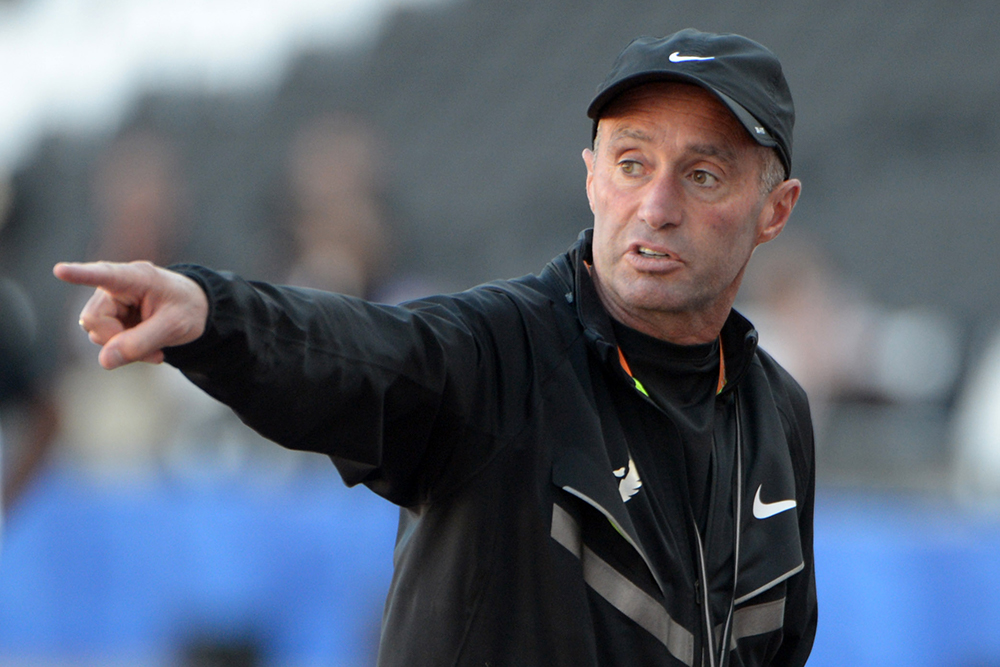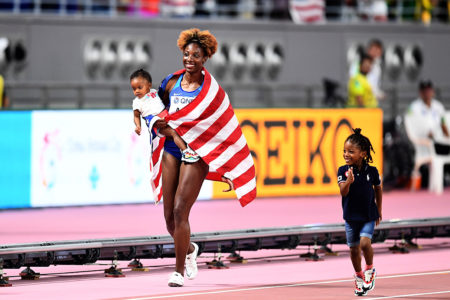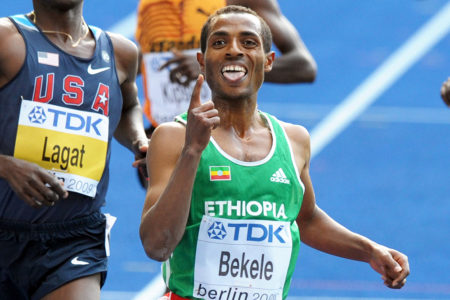
ALBERTO SALAZAR, the controversial head coach of the Nike Oregon Project, was banned for 4 years by USADA on September 30 after two different panels of the American Arbitration Association ruled that both he and NOP consultant Dr. Jeffrey Brown should be banned for “orchestrating and facilitating prohibited doping conduct.” The decisions, which didn’t impose sanctions on any specific athletes, were a long time coming, following a 2-year arbitration process and an investigation that apparently began at the end of ’12.
In e-mails revealed with the Salazar arbitration decision, the coach had informed Nike officials—including CEO Mark Parker—multiple times of his activities with performance-enhancing substances. Salazar issued a statement (now taken down) saying, “I have always ensured the WADA code is strictly followed. The Oregon Project has never and will never permit doping.”
None of the activities for which the bans were imposed involved Oregon Project-affiliated athletes who competed at the ’19 World Championships, all of whom joined the club long after the relevant period. Nonethless, the news hit hard in Doha, midway through the 10,000/1500 double of Salazar-coached Sifan Hassan. The Athletes Integrity Unit sent the coach’s athletes a message warning that any further contact with him would be grounds for suspension. The USATF reaction was succinct: “USATF’s commitment to clean sport and a level playing field for all athletes cannot be overstated. USATF’s focus remains on the health and well-being of its athletes. USATF has taken the steps necessary to have Mr. Salazar’s IAAF World Championships accreditation deactivated.”
After winning the 1500 in near-WR time, Hassan responded to charges that her win was “tainted,” notably from rival Laura Muir: “I don’t know why they have put the spotlight on me. I have been at the top since 2014, before I joined Nike, they can go check my background. What do they think, that the world anti-doping doesn’t test me?” She also maintained, “Since I joined, I have seen nothing, they have never offered anything to me. I believe in clean sport, the group is clean, they work very hard, they have really amazing staff, especially the physio. They have good people.” She added, “If they want to test me they can test me every single day. Every single day.”
Hassan’s comments came amid a storm of reactions that included prominent non-Nike athletes cheering the ban, Salazar athletes claiming innocence, and NOP athletes coached by Pete Julian, not by Salazar, maintaining their distance.
Not all of Salazar’s athletes fared as well as Hassan in the wake of the news. Clayton Murphy finished last in the Doha 800 final. Both Galen Rupp and Jordan Hasay dropped out of the Chicago Marathon, where Mo Farah, who left the Oregon Project 2 years ago, ran a subpar 2:09:58, his slowest 26-miler ever.
On October 11 Nike pulled the plug on the Oregon Project, saying, “This situation including uninformed innuendo and unsubstantiated assertions has become an unfair burden for current OP athletes. That is exactly counter to the purpose of the team. “We have therefore made the decision to wind down the Oregon Project to allow the athletes to focus on their training and competition needs. We will help all of our athletes in this transition as they choose the coaching setup that is right for them.”
UK Athletics High-Performance head Neil Black, a supporter of Salazar and his role as a performance consultant to the British 2013–17, has resigned, amid speculation that he “may not be the last” British casualty of the news.
In other fallout, IOC head Thomas Bach called for a closer investigation into Salazar’s athletes. IAAF boss Seb Coe, for his part, said, “I am entirely comfortable and very confident that the AIU will want to look at the whole case and want to think about the implications.”
Salazar’s Prize Pupils React
Mo Farah described what happened after the Salazar story originally broke back in ’15: “There were allegations… I flew to Portland to get some answers from Alberto. I talked to him face-to-face and he assured me at the time that it was just an allegation. ‘This is not true; there are no allegations against you, Mo.’ He promised me and that hasn’t been true. I was never given anything and I haven’t seen Dr. Brown. I haven’t failed any tests. I’m happy to be tested anytime and anywhere… There is no more I can do.”
In an e-mail to the New York Times, Salazar challenged Farah’s account: “I’m sorry Mo feels that way, but I’ve never lied to anyone about anything related to this investigation.”
Galen Rupp released a statement saying in part, “The panels’ decisions made it clear that neither I nor any Oregon Project athlete ever received any banned substance or were involved in any anti-doping rule violation. Since I first met and began working with Alberto 19 years ago, he has always put my health and well-being first and has done the same for his other athletes. I have personally seen him take great care to comply with the WADA Code and prevent any violations of any anti-doping rules.”
Jordan Hasay, who says she generally writes her own workouts now anyway, told Runners World, “It’s a valid question. Why do you affiliate yourself with the team, why when you know that there was this investigation, why would you stay with someone that is supposedly doing these things? What I’ve always said is that I’ve never seen anything. I trust what I know and I see. If I were to see anything or be offered it, I would have left long ago. That’s what I always said when I was going to join the team, and I still stick to that.”






